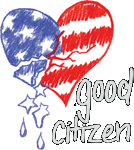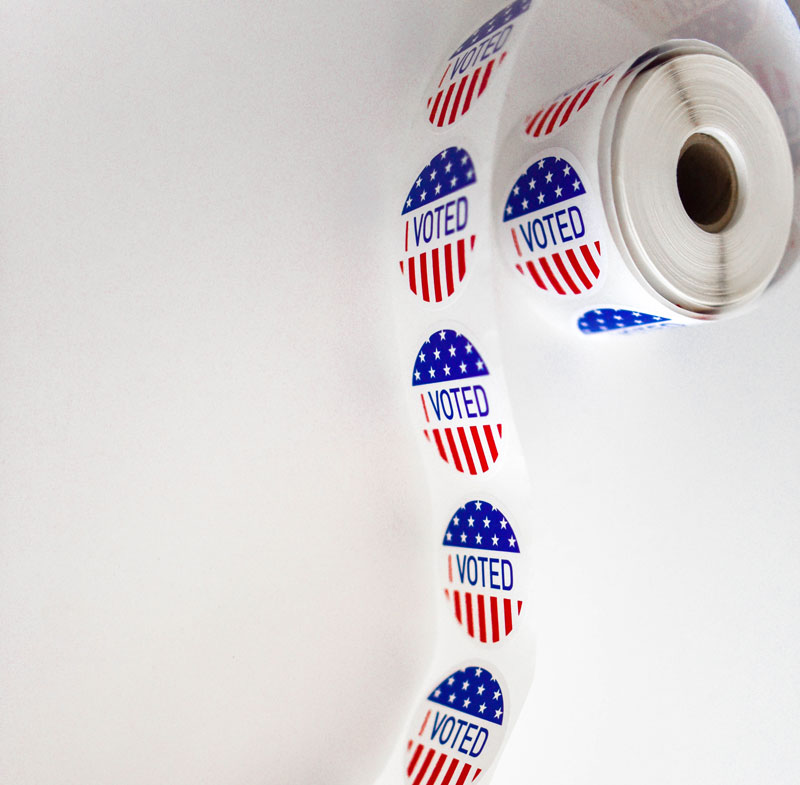
One of the unique characteristics and basic tenets of a democracy is that its citizens get to vote – both figuratively and literally – and that each citizen is able to live the life of their choosing – to be able to say and do what they want.
We are a democracy. A democracy is a form of government that is “of, by, and for” the people. Of the People means the government is comprised of regular citizens; by the people means the government is elected by its citizens; and for the people means that the sole purpose of government is to act in ways that benefit us.
The democratic process is the way we make that happen. We make the “of the people” part happen by running for public office; we make the “by the people” part happen by doing the things needed to elect our best to public office; and we make the “for the people” part happen by doing those things that keep us educated on important issues, that keep elected officials aware of our points of view, and that enforce our laws. The democratic process is not a methodology, but a way of living that keeps our country strong.
When we invest time, energy and money in something, we tend to care more about that something. So actions that keep us involved in the democratic process help us care about and appreciate our democracy and freedoms. They are the actions most closely associated with citizenship.
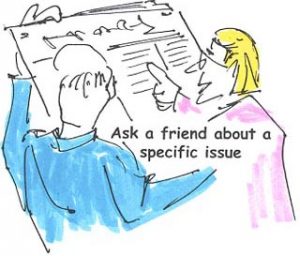 In some ways this action is so easy and so useful and can be so intellectually invigorating. It’s so valuable because listening to someone else’s thoughts is educational. Educational in that it gives us another perspective on the issue; educational in that it gives us a better sense of our friend; and educational in that it gives us an opportunity, and presents a challenge, to more clearly formulate and articulate our feelings on the issue.
In some ways this action is so easy and so useful and can be so intellectually invigorating. It’s so valuable because listening to someone else’s thoughts is educational. Educational in that it gives us another perspective on the issue; educational in that it gives us a better sense of our friend; and educational in that it gives us an opportunity, and presents a challenge, to more clearly formulate and articulate our feelings on the issue.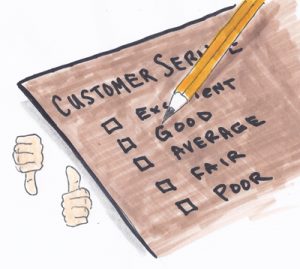 Background
Background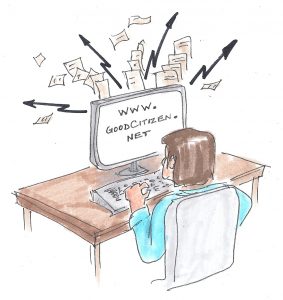 If the basic beliefs of citizenship set forth of this web book resonate with you, then you’ll appreciate the importance of this action.
If the basic beliefs of citizenship set forth of this web book resonate with you, then you’ll appreciate the importance of this action.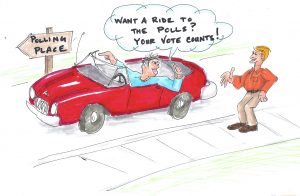 Voting is so important and for so many reasons. And not only do we have the privilege of voting, but we can encourage others to vote by:
Voting is so important and for so many reasons. And not only do we have the privilege of voting, but we can encourage others to vote by: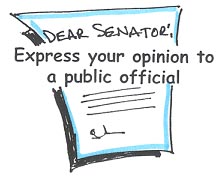 There are many things we take for granted. The ability to freely say what we believe is one of them. Amazingly, in many countries, when one speaks out against the government, there is the prospect of recrimination, jail, or even bodily harm.
There are many things we take for granted. The ability to freely say what we believe is one of them. Amazingly, in many countries, when one speaks out against the government, there is the prospect of recrimination, jail, or even bodily harm.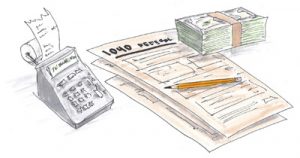 Until we go to a flat tax system or a use-based tax system, this action should probably have said “Pay the taxes you think you owe.” The current tax code makes it difficult for many Americans to accurately determine what they owe. But the reality is federal, state and local governments do provide needed services, and those services are funded by the taxes we pay.
Until we go to a flat tax system or a use-based tax system, this action should probably have said “Pay the taxes you think you owe.” The current tax code makes it difficult for many Americans to accurately determine what they owe. But the reality is federal, state and local governments do provide needed services, and those services are funded by the taxes we pay.
 To protest is to express objection to or support of an idea, a cause, a position, or an action. The ability to express one’s opinion freely and peacefully is one of this country’s great strengths. It allows all points of view to be heard and thus considered. I have always thought that holding up a sign in public in protest over something you feel strongly about takes a lot of courage and commitment.
To protest is to express objection to or support of an idea, a cause, a position, or an action. The ability to express one’s opinion freely and peacefully is one of this country’s great strengths. It allows all points of view to be heard and thus considered. I have always thought that holding up a sign in public in protest over something you feel strongly about takes a lot of courage and commitment. This action means that when individuals or organizations do something that injures, or might injure, or that is unfair to others, that we do what is needed to either see that the situation is rectified or brought to the attention of the appropriate parties.
This action means that when individuals or organizations do something that injures, or might injure, or that is unfair to others, that we do what is needed to either see that the situation is rectified or brought to the attention of the appropriate parties.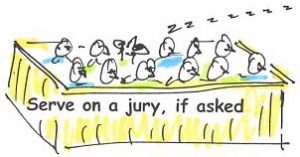 Laws are vital. They prescribe how a society will function. Without them, there would be chaos!a society like ours wouldn’t survive – there would be chaos!
Laws are vital. They prescribe how a society will function. Without them, there would be chaos!a society like ours wouldn’t survive – there would be chaos!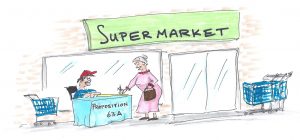 Groups or individuals who are against a policy or action or law of a government or the policy or actions of a company often create a petition requesting a change.
Groups or individuals who are against a policy or action or law of a government or the policy or actions of a company often create a petition requesting a change.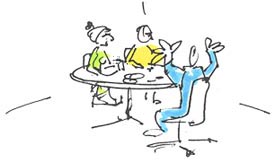 Talking about current events at the dinner table with one’s children is not only a great way to spend time with your kids (or parents) but it sets a good example that it’s okay and important to talk about events and to have one’s own opinions.
Talking about current events at the dinner table with one’s children is not only a great way to spend time with your kids (or parents) but it sets a good example that it’s okay and important to talk about events and to have one’s own opinions.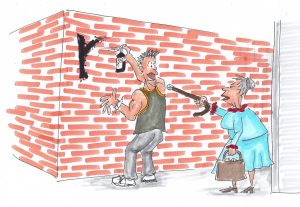 Most of what other people do is not our business. Fortunately in this country, each of us gets to live our own life in our own way and not according to how someone else wants us to live it. However, we are also a society, and, because of that, each of us must make certain accommodations to our behavior.
Most of what other people do is not our business. Fortunately in this country, each of us gets to live our own life in our own way and not according to how someone else wants us to live it. However, we are also a society, and, because of that, each of us must make certain accommodations to our behavior.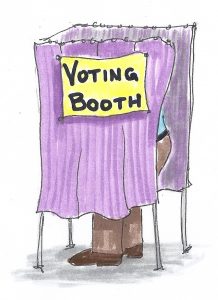 Voting is the essence of democracy. Failing to vote is to become a member of what the media calls the “silent majority” and to open the door for the demise of democracy. The reality is that in a democracy the notion of a “silent majority” is an oxymoron. A more accurate term would be the “silent minority”. To not vote is to take the “by the people” out of Lincoln’s Gettysburg address’ “Government of the people, by the people and for the people.”
Voting is the essence of democracy. Failing to vote is to become a member of what the media calls the “silent majority” and to open the door for the demise of democracy. The reality is that in a democracy the notion of a “silent majority” is an oxymoron. A more accurate term would be the “silent minority”. To not vote is to take the “by the people” out of Lincoln’s Gettysburg address’ “Government of the people, by the people and for the people.”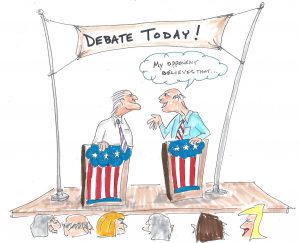 Political debates are perhaps the best way to assess candidates for public office. Such debates present a forum for voters to listen to the candidates’ ideas and to observe their style, poise, persuasive ability, and reaction to challenges and criticism. And while many of the debates may not be “real” debates, they often provide the opportunity to see for ourselves and not rely solely on candidate spin doctors or media-driven perceptions.
Political debates are perhaps the best way to assess candidates for public office. Such debates present a forum for voters to listen to the candidates’ ideas and to observe their style, poise, persuasive ability, and reaction to challenges and criticism. And while many of the debates may not be “real” debates, they often provide the opportunity to see for ourselves and not rely solely on candidate spin doctors or media-driven perceptions.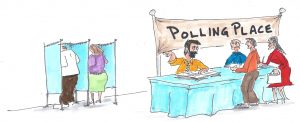 Other than perhaps working as part of a candidate’s election campaign, there isn’t anything like working in a polling location during an election. It gives one a unique feeling of participation and a unique understanding of a democracy – of the importance and power of voting. Ensuring the privacy of voting and ensuring that fraud isn’t committed are powerful responsibilities.
Other than perhaps working as part of a candidate’s election campaign, there isn’t anything like working in a polling location during an election. It gives one a unique feeling of participation and a unique understanding of a democracy – of the importance and power of voting. Ensuring the privacy of voting and ensuring that fraud isn’t committed are powerful responsibilities.